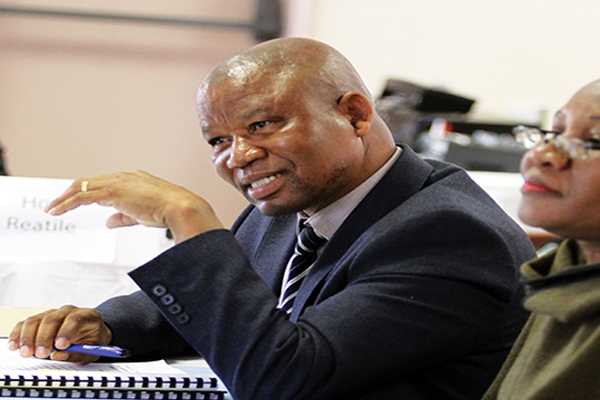Financial guarantees cause Govt. headache
Botswana’s think tanks have urged government to find an appropriate way to treat government guarantees under the laws without undermining debt sustainability- if the country wants to promote power generation by the private sector.
In a joint second quarter 2017 economic review of April-June, economists Dr Keith Jefferis and Sethunya Sejoe highlight that, through Independent Power Producers (IPPs), whether by coal, gas, solar or any other method, guarantees will always be needed.
The new Morupule B power station has been functioning reasonably well, although it is yet to fully deliver electricity at its design capacity, and is still undergoing rehabilitation work.
In order to increase domestic supply capacity, it is intended to add two more units (5 and 6) to Morupule B. This will be done through the private sector, on an IPP (Independent Power Producer) basis.
To achieve this, the Ministry of Mineral Resources, Green Technology and Energy Security (MMRE) and the Botswana Power Corporation (BPC) have contracted a consortium of Marubeni (of Japan) and POSCO (South Korea) to build and operate the coal-fired power station for a period of 30 years.
According to the review, however, the deal has run into problems with the financial guarantees required from Government, which has to underwrite BPC’s commitment to buy the power produced, given BPC’s weak financial position. “Government’s ability to borrow and provide guarantees is limited by the Stocks, Bonds and Treasury Bills Act, which limit each of domestic and foreign debt and guarantees to 20 percent of GDP.
“Botswana already has considerable foreign borrowing (mostly from the African Development Bank and the World Bank), and a large sovereign guarantee for BPC’s loan from Stanbic/ICBC for Morupule B units 1-4. Total foreign debt and guarantees totalled 16.1 percent of GDP at the time of the 2017 Budget,” the two economists revealed in their review.
Meanwhile the subject of government guarantees became a topical issue when Specially Elected MP Bogolo Kenewendo raised it at the Public Accounts Committee sometime in June this year. Kenewendo who sits in the Committee asked the Permanent Secretary in the Ministry of Finance and Economic Development, why guarantees are included as debts and if the officer was satisfied with the level of the country’s borrowing.
In his submission, Solomon Sekwakwa indicated the subject as one of the topical issues that had often cropped up at their International Monetary Fund and Rating agencies forums. “These agencies think we are very protective in terms of the buffer, and so perhaps we need to improve on them,” said Sekwakwa.
Kenewendo buttressed that this restricts the level of borrowing for other vital projects and is becoming a liability to the government. At the time, Sekwakwa explained that, “Botswana has never had money problem, therefore the need to borrow has never been an issue and hence the strategy to respond to the current situation. There are projects which are floating out there which will need guarantees, for instance Energy programmes.”
Sekwakwa revealed that the Morupule programme has withdrawn from the guarantee, as there were other aspects that they thought needed to be addressed. Sekwakwa was of the view that if the programme gives value for the government then it will be brought to Cabinet to provide a guarantee. He said, “Initially one of Morupule’s requirements was for the dollar rate to be at 30 percent. If BPC fails to give them power, government will pay US$245 per day. It is not about the principles but about the ability. We wanted them to reduce the liabilities.”
Sekwakwa said it was also at a time when African continent was having problems because of those organs that had funded them. Some of the African countries refused to yield them a moratorium, they demanded their money back. Sekwakwa advised at the Committee that it is prudent for Botswana to develop her capital markets, as Private Public Partnerships’ money is not free money as it has to be paid back at some point.
He emphasised that the Stocks, Bonds and Treasury Bills Act is something that needs to be reviewed considering the way government bonds are traded. He said his ministry will sit together with the Botswana Stock Exchange and Bank of Botswana for further review discussions.
Looking back on the Q2 economic review, the electricity supply situation has improved markedly, with sufficient power available to meet national demand and no repeat of the load shedding which caused problems for businesses and households in 2014-15.
Several factors have transformed the power supply situation, including the demise of BCL, whose smelter was by far the largest single consumer of electricity in the country. It has reduced national demand by around 15 percent, as well as the ready availability of power from South Africa, which now has a surplus to export; hence Botswana is now no longer using very expensive diesel power generation, according to the review.
In another development, a request has just been issued for proposals to provide 100MW of electricity generated from solar power. This would help Botswana to meet the commitments made to the international community under CoP21 to undertake mitigation measures to reduce Co2 greenhouse gas emissions.
The two economists have emphasised on the need for better co-ordination between Ministries undertaking large projects with significant financial commitments, and the Ministry of Finance which is the custodian of the public finances.
To refresh the memories, a similar problem arose with the deal between BCL – another parastatal under the MMRE - and Norilsk Nickel, which involved a payment of over $300 million from BCL to acquire regional nickel assets from Norilsk.
In the event BCL did not have the funds to complete the deal, but it had not made formal arrangements to obtain sufficient finance from government. As a result, the deal was unable to proceed, and BCL had to be put into liquidation and a solution to this impasse is still being sought.





